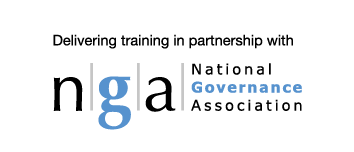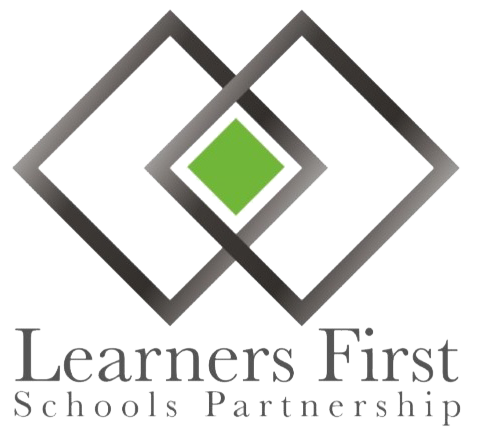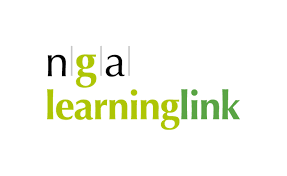GOVERNANCE DEVELOPMENT
Supporting governors to provide confident, strategic leadership and oversight for educational and financial performance



Governance Development
CPD opportunities for those who hold Governance roles within MATs at Board or individual School/Academy Level.

DFE Governance Guides
DfE guidance for governing boards to provide confident, strategic leadership for schools and Trusts. The new guides issued on 07th March 2024 replace the governance handbook 2019
GOVERNANCE DEVELOPMENT PROGRAMME

For 2023/24 Learners First has continued its partnership with the National Governance Association (NGA) to offer a range of professional development opportunities for governors, members, trustees and clerks to develop their knowledge and skills and to discuss and share practice, aligned to the three core functions as set out by the DFE in the Governance Handbook.
See course details below.
Online Learning
Learners First has again teamed up with The National Governance Association (NGA) and, through their strategic partnership with Virtual College (one of the UK’s top e-learning providers, to provide accessible, engaging and convenient e-learning for governors and trustees) is able to offer the NGA Learning Link to subscribing schools. The ‘NGA Learning Link’ offers flexible e-learning to help governors, trustees, chairs and clerks develop their governance skills and knowledge. The NGA Learning Link offered to schools and MATs subscribing to Learners First has:
* Over 65 e-learning modules
* CPD accreditation for all core modules and many others
* A selection of bite size modules
* A certificate of achievement with every module
* Secure access 24 hours a day, 7 days a week
* Multi-device access (desktops, tablets & smartphones)
* Tracked learning (revisit content, take a break/pick up where you left off)
Modules are interactive, using relevant scenarios to make learning effective and engaging. They are designed to cover the key areas of governance such as:
- Structures, roles and responsibilities (understanding school/MAT structures and governance expectations)
- Good governance (improving the effectiveness of governing boards, conducting visits to schools, Ofsted inspections and succession planning.)
- Vision, ethos and strategic direction (shaping strategic direction, risk management, evaluating effectiveness and governor/trustee roles in school improvement).
- Pupil success and wellbeing (core purpose: the quality of education provided to pupils.)
- Collaborating with partners (key partners and stakeholders, how to develop relationships with them, and how engagement with stakeholders can lead to better outcomes for pupils.
An introduction to local governance in a multi academy trust
- 5.00pm – 7.00pm, 15th January 2024 (session 1 of 2)
- 5.00pm – 7.00pm, 29th January 2024 (session 2 of 2)
For those new to MAT local governance or local governors seeking a refresher, this short, two workshop programme equips participants with the essential knowledge and understanding to make an early impact. The programme includes follow-on activities and signposting to allow participants to build their understanding of their specific roles and responsibilities, how good governance works at school level in their particular MAT, and how to make more confident contributions as they get their feet under the governance table.
Preparing for Ofsted – what governors and trustees need to know
- 5.00pm – 7.00pm, 24th January 2024
The prospect of an Ofsted inspection is daunting for everyone, not least for governing board members and others involved in governance who may meet with inspectors and be expected to answer questions about the effectiveness of governance and school or trust leadership. This session will develop understanding of the Ofsted framework, the inspections process and the criteria used to make judgments about a school. It clarifies the remit of staff and what can be expected from those governing and provides the opportunity for participants to explore how to respond credibly to Ofsted lines of enquiry.
Spring Term 2024
An introduction to data and school performance measures
- 5.00pm – 7.00pm, 15th February 2024
There is now a wealth of data sources that governors and trustees need to be aware of. They also need to be cognisant of the extent to which the data can be analysed, as well as other means by which governors and trustees can get to know their school(s). This workshop will clarify the range of resources available to those governing, the key measures that they need to be familiar with and how they can use this knowledge effectively to feed into their core function of holding the organisation to account.
Understanding pupil premium and the governance role
- 5.00pm – 7.00pm, 27th February 2024
School leaders are best placed to assess their pupils’ needs and decide how to use pupil premium funding to improve attainment. The governing board is responsible for ensuring that the spending is targeted at the right pupils and has an impact on their attainment and progress. Pupils who are targeted will include those who receive the funding, and pupils who don’t but will benefit from the support/intervention that the funding is spent on.
Safeguarding: an introduction to the governance role
- 5.00pm – 7.00pm, 18th March 2024
It is critically important that governors and trustees understand how pupils are kept safe when at school. This aspect of their role matters not least because parents and carers entrust their children to the trust or school, but also because the governing board must be able to assure that the trust or school is complying with statutory requirements and best practice. At the end of this session, participants will understand the theory and practice of safeguarding and how to fulfil the governing board’s role in keeping pupils safe.
Summer Term 2024
The effective governance of SEND
- 5.00pm – 7.00pm, 2nd May 2024
All governing boards have legal duties in relation to pupils with special educational needs and disabilities (SEND). These responsibilities can seem daunting, leaving boards not knowing where to start. At the end of this workshop, participants should have a thorough understanding of SEND and how they can ensure that those with SEND have their needs met and make the very best progress in their school(s).
Pupil Exclusion Panels (discipline committees): Fulfilling your Role
- 5.00pm – 7.00pm, 22nd May 2024
Sitting on an exclusion panel (also known as a discipline committee) or and being expected to ask questions, evaluate evidence and reach a sound decision, is a daunting prospect for any governor or trustee. Being required to attend a panel can be equally challenging for senior executive leaders, pupils and parents and for governance professionals acting as the panel clerk.
By the end of this session, you should have a clear picture of how a panel should work, your role in this and how to follow the process. You will be aware of the relevant law, guidance and policies that need to be followed, and should be able to participate confidently in the panel hearing, contributing to the making of a sound panel decision.

DFE GOVERNANCE GUIDES 2024
The purpose of governance is to provide confident, strategic leadership and to create robust accountability, oversight and assurance for educational and financial performance.
All boards, no matter what type of schools or how many schools they govern, have three core functions:
- Ensuring clarity of vision, ethos and strategic direction;
- Holding executive leaders to account for the educational performance of the organisation and its pupils, and the performance management of staff; and
- Overseeing the financial performance of the organisation and making sure its money is well spent.
Please download the DfE documents below for further information.




